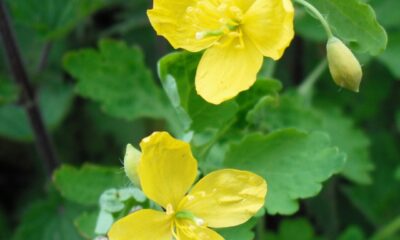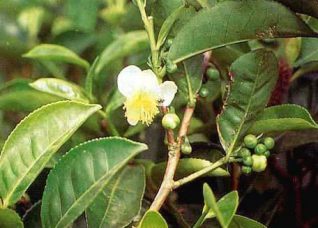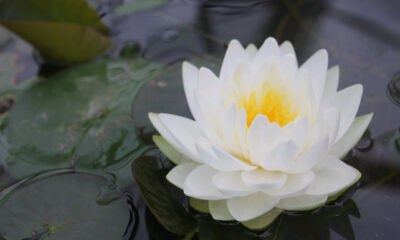. doi: 10.1155/2014/687697
. Published online 2014 Sep 1
Masoume Rezaee-Asl, 1 Mandana Sabour, 1 Vahid Nikoui, 2 Sattar Ostadhadi, 2 and Azam Bakhtiarian 2 ,
Abstract
Leonurus cardiaca, commonly known as motherwort, is a member of the Lamiaceae family. It has a number of interesting biological activities, for example, sedative and hypotensive, antioxidant, anti-inflammatory, and antimicrobial activities. The aim of the present study was to investigate the effect of alcoholic extract of aerial part of Leonurus cardiaca on nociceptive response using formalin, tail flick, and hot plate tests in mice. The acute treatment of mice with an ethanolic extract at doses of 500 and 250 mg/kg by intraperitoneal administration produced a significant antinociceptive in the first and second phases of formalin test, respectively. The hot plate and tail flick tests showed an increase in the antinociceptive effect at dose 500 mg/kg. These results suggest that Leonurus cardiaca possesses central and peripheral antinociceptive actions.
1. Introduction
Plants have been used for therapeutic applications ever since man has been concerned about his health. For centuries, the world has depended on the useful possessions of plants as a source of medicines [1]. Ethnobotanical investigations done in the last few decades had discovered the analgesic properties of plants mentioned in the traditional information. Numerous herbal preparations are being suggested as analgesic in the traditional information. The exploration for new analgesic compounds from the enormous arrays of medicinal plant resources is growing. This is because such information may hold guarantee for the finding of new therapeutic agents capable of inhibiting, decreasing, or relieving pain [2]. Plants characterize a huge natural supply of valuable compounds that might achieve as lead for the expansion of novel drugs [3]. The exploration of the effectiveness of plant-based drugs used in the traditional medicine has been given great considerations because they are cheap and have little side effects, and, according to World Health Association (WHO), about 80% of the world population still relies chiefly on plant-based drugs [4].
One of these medicinal plant species that has dramatic pharmaceutical values is Leonurus cardiaca L. [5]. Leonurus cardiaca, commonly known as motherwort, is a member of the Lamiaceae family that has been consumed in Asian countries as a traditional remedy against nervous and functional cardiac disorders [6, 7]. Leonurus cardiaca belongs to the genus Leonurus and family Lamiaceae, previously called Labiatae. It is a perennial herb prevalent in Europe, usually found in country areas throughout the plains and hills, as well as in East Asia to the Himalayas and eastern Siberia, Northern Africa, and North America [7]. Motherwort consists of the aerial portions of Leonurus cardiaca collected through the flowering time and dried at 35°C and, according to European Pharmacopoeia 7th edition, must encompass a minimum of 0.2% flavonoids expressed as hyperoside [7]. In the aerial parts of Leonurus cardiaca, there are ingredients belonging to the group of terpenes, including monoterpenes such as iridoids [8], diterpenes of clerodane [9], furanolabdane, and labdane types [10], triterpenes including ursolic and oleanolic acids [11, 12], nitrogen-containing compounds such as leonurine [13] and stachydrine [14], and phenylpropanoids such as lavandulifolioside [6], as well as flavonoids [15], phenolic acids [16], volatile oils [17], sterols [18], and tannins. Pharmacological reports have established antimicrobial [10, 19], antioxidant [15, 16], and anti-inflammatory [12] effects, as well as the effects of the herb on the heart and circulatory system. Sedative and hypotensive properties have been established in clinical trials. Since pharmacological studies are limited, the use of motherwort is mainly based on traditional suggestions.
Analgesic drugs are one of the most products that are used in numerous diseases for alleviating the pain. Most analgesic drugs, accessible in the market, exhibit an extensive range of adverse effects including gastrointestinal disorders, kidney problems, and other unwanted effects. This situation highlights the need for advent of safe, novel, and effective analgesic compounds. The aim of the present study was to investigate the analgesic activities of aerial part of Leonurus cardiaca using three analgesic tests in mice.
Reference:
https://www.ncbi.nlm.nih.gov/pmc/articles/PMC4897125/


 Alternative Health2 years ago
Alternative Health2 years ago
 Life Force Network2 years ago
Life Force Network2 years ago
 Alternative Health1 year ago
Alternative Health1 year ago
 Life Force Network2 years ago
Life Force Network2 years ago
 Alternative Health2 years ago
Alternative Health2 years ago
 Military2 years ago
Military2 years ago

















